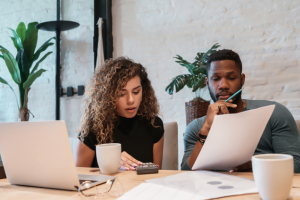The dream of homeownership is a significant goal for many individuals and families. However, the process of buying a house involves more than just picking the perfect property. One of the most crucial aspects to consider is how much money you’ll need to make your homeownership dream a reality. In this blog, we’ll break down the key financial aspects and expenses you should be prepared for when buying a house.
1. Down Payment
The down payment is often the most substantial upfront cost when purchasing a home. Traditionally, a 20% down payment of the home’s purchase price is recommended to avoid private mortgage insurance (PMI). However, it’s worth noting that some loans offer lower down payment options, such as FHA loans with as little as 3.5% down. The amount you need for a down payment largely depends on the price of the house you’re buying.
2. Closing Costs
Closing costs are a bundle of fees and charges associated with the home purchase process. They typically include charges for the appraisal, inspection, title insurance, attorney fees, and more. On average, closing costs can range from 2% to 5% of the home’s purchase price. These costs vary by location and the intricacies of the transaction.
3. Home Inspection and Appraisal
Before buying a house, you’ll likely want to invest in a home inspection to uncover any potential issues with the property. The cost of a home inspection varies but can range from $300 to $500 or more. Additionally, you may need to pay for an appraisal to determine the property’s market value, which can cost around $300 to $500.
4. Earnest Money Deposit
When you make an offer on a home, it’s customary to provide an earnest money deposit to demonstrate your commitment to the purchase. The amount can vary but is typically around 1% to 3% of the home’s purchase price. This deposit is held in escrow until the closing.
5. Moving Expenses
Don’t forget to budget for the cost of moving your belongings to your new home. Whether you hire professional movers or rent a truck and do it yourself, moving expenses can range from a few hundred to a few thousand dollars, depending on the distance and complexity of the move.
6. Prepaid Expenses
Before closing, you’ll need to pay for certain prepaid expenses, such as property taxes and homeowners insurance. These costs can vary depending on your location and the time of year when you close on the house.
7. Ongoing Costs
Once you’ve purchased a home, you’ll need to budget for ongoing homeownership expenses, including property taxes, homeowner’s insurance, utilities, maintenance, and repairs. These costs can vary widely, so it’s essential to have a realistic estimate of what you’ll need to cover each month.
Buying a house is a significant financial commitment, and understanding how much money you need is crucial to a successful home purchase. While the upfront costs like the down payment and closing costs are substantial, it’s also essential to consider the ongoing expenses associated with homeownership. Careful planning and budgeting can help you achieve your homeownership goals while maintaining your financial stability. If you’re considering buying a home, it’s advisable to consult with a financial advisor or a real estate professional to ensure you’re adequately prepared for the financial aspects of the process.
